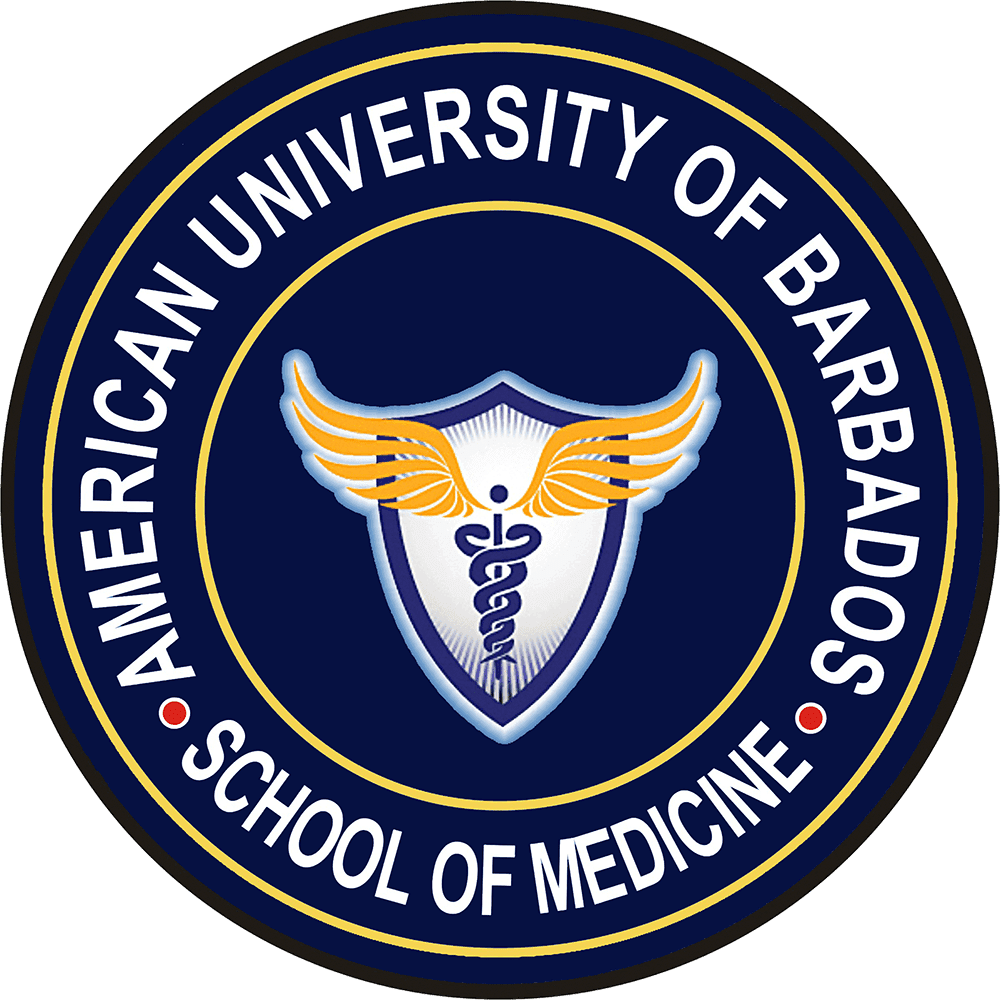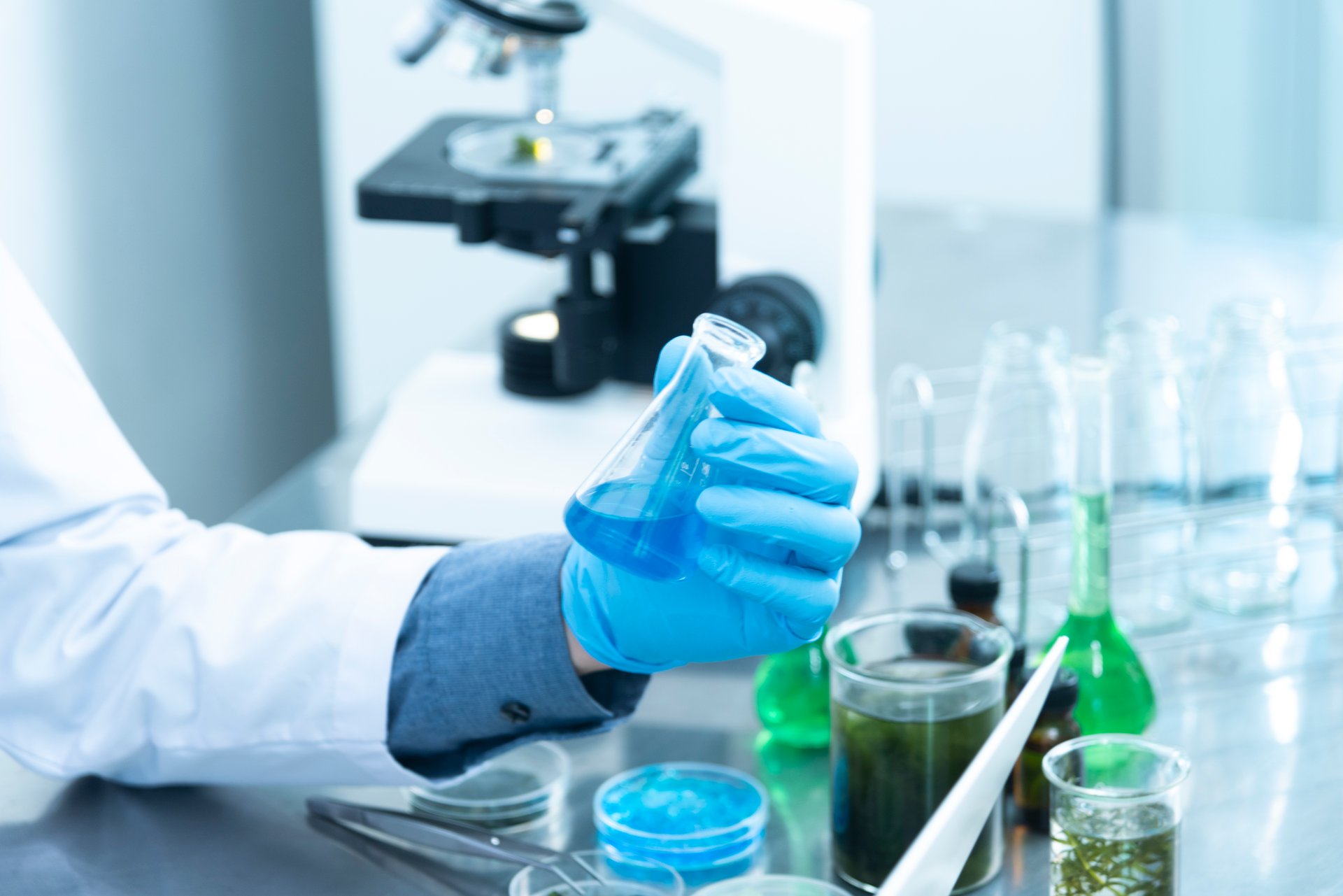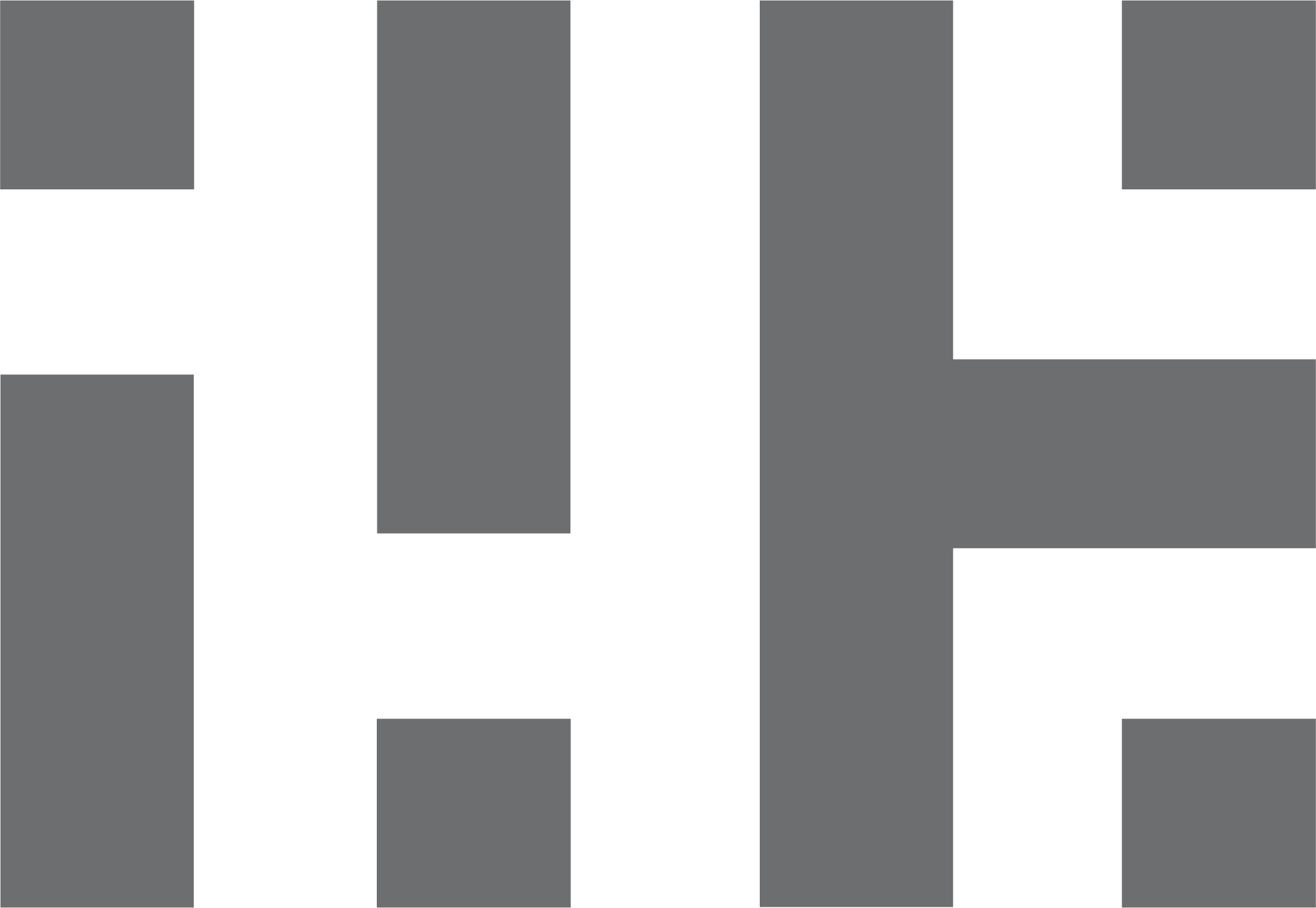
American University of Barbados,
Saint Michael, Barbados
History
The American University of Barbados, School of Medicine is CAAM-HP accredited and among the top universities of the Caribbean. We intend to prepare our students to be global leaders in all aspects of healthcare. Our goal is not simply to create ‘doctors’ but ‘medical scholars’ imbued with a lifelong desire for knowledge and service.
Studying medicine at AUB is a great opportunity which brings you close to the frontiers of current scientific knowledge. This choice sets you upon a path towards the noble profession of medicine with a unique model of medical education which we believe is second to none.
The USA based medical curriculum is designed specifically to meet the licensing requirements in the United States and other nations around the globe. The balanced student-faculty ratio allows for highly personalized discussions and interactions between students and professors. The global outreach of our faculty and administration ensures that students have significant exposure and opportunities.
Our students come from all over the world with rich experiences, thereby building up a truly cosmopolitan community of scholars at American University of Barbados. The medical school serves as a launch pad for medical professionals and guides them in providing better healthcare consequently alleviating suffering from the communities around the world.
MOTTO
‘Knowledge for life’
VISION
AUB aspires to produce medical graduates who are emotionally and culturally sensitive with world-class competence, so that they can be valued and respected as responsible citizens. The aim of the university is not only to produce medical doctors with a good clinical knowledge, but also to instill in them ethics and values by which they can treat their patients with a human touch.
MISSION
AUB seeks to provide world-class medical education with advanced and innovative technology in an environment that fosters appreciative enquiry, human sensitivity and collaborative research aimed at reducing human suffering and pain.
CHARTER
Barbados Accreditation Council
CAAM-HP
World Directory of Medical School (WDMS)
Introductory Videos

Faculties & Departments
| Name of Faculty | Designation |
|---|---|
| Dr. Keneth M.Sterling Jr. | Professor and Head of Department – Biochemistry |
| Dr. Birendra Raj Tiwari | Professor and Head of Department Microbiology |
| Dr. Jeevan Divakaran | Professor and Head of Department – Pathology |
| Dr. Shrikant Akolekar | Professor and Head of Department – Anatomy |
| Dr. Mirza Karrar Ali | Associate Professor – Pathology |
| Dr. Bishouno Bhowmick | Senior Lecturer- Pharmacology |
| Dr. Jerome Brathwaite | Lecturer – Microbiology and Immunology |
| Dr. Waneisha Jones | Lecturer – Behavioral Sciences and Biostatics |
| Dr. Carmelita Morris | MD5 and Physical Diagnostic |
| Dr. Joeleita Agard | Medical and Legal Ethics |
| Dr. Amy Emtage | Tutor Pharmacology |
| Name of Faculty | Designation |
|---|---|
| Mrs. Dinah Saint Jean | Premed Coordinator & Senior Lecturer – Chemistry |
| Dr. Maegan Chabrol | Senior Lecturer – Biology |
| Mr Marlon Stewart | Senior Lecturer – Mathematic& Physics |
| Ms Christa Soleyn | Senior Lecturer – English |
| Dr Adrianne Bynoe | Introduction to Anatomy& Physiology |
| Azalea Johnson | Chemistry |
Duration: Only for 5½ years MD Program
A dedicated faculty, caring and encouraging counselors, an enriching community, all wrapped up in a beautiful and vibrant environment, is what awaits our high school finishers (12th graders) at the American University of Barbados for the Pre Medical program. The program consists of 4 semesters. The subjects taught during this phase strengthen our medical student’s foundational knowledge.
SEMESTER – I
Biology I: Introduces the fundamental concepts in biology. Emphasis is laid on cell structures & functions, metabolism, organism genetics, energy transformation, evolution, classification and other related topics. The course also includes the role of the cell cycle with regard to inheritance.
General Chemistry I: Identifies the fundamental concepts of chemistry and explores atomic structure, the Periodic table, chemical equations, concepts of bonding, stoichiometry and types of reactions. The course also seeks to introduce minor concepts of acid-base balance from medical physiology.
Pre Calculus: This course is designed to provide a comprehensive study of functions, which are the basis of calculus and other higher mathematics courses. The students will study the properties and graphs of trigonometric, polynomial, rational, inverse, exponential and logarithmic functions. This course meets the pre-requirements for Calculus.
Computer Science: Equips students with the basic understanding of the computer, its uses and applications. It also includes the mastery of basic computer skills such as word processing, databases, reports, spreadsheets and multimedia presentations. The course seeks to outline the computer operations required to access, create, manage, integrate, store and retrieve information.
English I: Provides a systematic and practical introduction to effective college level English skills. A review of grammar and syntax is included which will help students build the necessary skills to write papers effectively.
SEMESTER – II
Biology II: Elaborates the relationships between normal structure and function in human cells, tissues and organs, along with mechanisms that maintain homeostasis within an individual. The course materials are organized into modules dealing with organ systems such as Digestive, Respiratory, Circulatory, Urinary, Reproductive and Endocrine systems. Emphasis is also given to the understanding of the connectivity of all these organ systems to each other to maintain life.
Chemistry II: Expands on concepts such as Periodicity and Chemical Bonding which were introduced in General Chemistry 1. The course also introduces new concepts such as Reaction Kinetics, Acids and Bases as well as Chemical Equilibrium. The usefulness of knowledge on these concepts as it relates to the body and medicine is also taught.
Calculus: This course builds on concepts covered in Pre-calculus. It covers optimization of functions with two or more variables, various integration techniques and differential equations.
English II: Addresses the various means of improving effective communication through critical thinking, careful writing and vocabulary expansion. Improving the student’s reading rate and comprehension is the ultimate goal.
SEMESTER – III
General Physics I: Introduces fundamental concepts of physics, including mechanics, properties of matter, thermodynamics, heat and wave motion. It is specifically oriented to benefit the medical students.
General Psychology: An introductory class that explores key theories and the science of behavior, focusing on the individual as an adapting biological system. Topics covered include research methodology, psychological disorders, memory and neuropsychology.
Organic Chemistry I: Introduces the structure, nomenclature, properties & reactions of carbon compounds, hydrocarbons, nonfunctional & poly functional compounds. The role of organic compounds in the field of medicine is also emphasized. It provides the concepts needed to successfully complete Organic Chemistry II.
Communications Skills and Community Health: This course helps students to develop their communication skills which is essential in the health care profession. Students are introduced to the multidimensional work of community health care where they will liaise with medical organizations in Barbados. Additionally, students will develop skills in public speaking, history taking and essentials of the doctor-patient relationship.
Introduction to Cell Biology: This course explores the cellular basis of life in both eukaryotic and prokaryotic organisms. The course deals with the basic biological concepts and principles with emphasis on the structure and function of the different cells responsible for life. Focus is on structure, function and biosynthesis of cell membrane and organelles. Additionally concept of cell growth, oncogenic transformation, transport, receptors, cell signaling, cytoskeleton, extracellular matrix, cell movements, chromatin structure and RNA synthesis are also taught. Particular emphasis is placed on cellular processes such as gene expression, mutation and the regulation of gene expression.
Ethics: Examines a selection of moral issues in contemporary society. Topics include biomedical ethics, environmental quality, philosophical foundations and sexuality.
SEMESTER – IV
Clinical Cases and Terminology: Equips students with a solid foundation to understand the various terminology used in many aspects of medicine. The course is intended to provide insight into the analysis of minor clinical cases and their relation to the appropriate human organ systems.
Introduction to Anatomy and Physiology: Focuses on the structure and function of the body’s various systems. It introduces students to the terminology used in both Anatomy & Physiology and teaches students about the general types of tissue found in the human body (Histology). Additionally, some functional disease pathologies, biochemical systems and anatomical kinetics are also taught.
Introduction to Microbiology and Immunology: Provides a basic introduction to the fields of microbiology and immunology. In this course students will explore the microbial world while gaining knowledge on the history of microbiology, review characteristics of microbial groups, microbial genetics, regarding culture and staining techniques, pathogenicity, epidemiology, host defense mechanism and aspects of microbial diseases.
General Physics II: This subject is an introduction to basic principles of electricity, magnetism, electromagnetism and optics. This course does not require the mastery of calculus.
Organic Chemistry II: Builds upon concepts outlined in the first semester of organic chemistry. It emphasizes on the structure and reactivity of functional groups (aromatic compounds, carbonyl compounds, carbohydrates, organo-metallic compounds, carboxylic acids & their derivatives, amines and amino acids). This course covers all the essentials needed for biochemistry like introduction to lipids, carbohydrates, proteins, nucleic acids and spectroscopy as they relate to clinical medicine.
Note : Students who complete the Pre-Medical program successfully will be promoted to the 1st semester of the basic sciences of the 4 year MD program.
Duration: For both 51/2 and 4 years MD Program
The Basic Science program is of 5 semesters and comprises of Pre-clinical and Para-clinical subjects. The problem-based teaching methodology at AUB provides students with extensive USMLE training throughout the Basic Science program. In order to succeed in USMLE and practice in USA, students are encouraged to take NBME exams, which are practice exams and approximates the USMLE standards. The students save time as the MD program and USMLE preparation goes hand in hand. Such rigorous training helps students to score better in USMLE in their first attempt.
SEMESTER – I
Anatomy-I: This course is taught in two semesters MD1 & 2 using regional approach to teaching anatomy. During the first Basic Medical Sciences semester (MD 1) thorax, abdomen, pelvis, Upper and Lower Limbs are completed. Within each section, the students are given lectures on human gross anatomy (and embryology wherever relevant), three-dimensional relationships and the anatomical variation.
Embryology: This course will introduce embryological development and will enable students to understand the development of the foetus during intrauterine life. It will also impart the knowledge with respect to the development of various human systems and developmental anomalies with its applications in medical research.
Biochemistry-I: This course explores the study of the chemical processes and constituents of life. Students must have successfully completed Biology and Chemistry at least to the level of CAPE with good appreciation of organic chemistry and plant and animal cell structures. This course is a good asset to Biochemistry II as it provides the background chemical information for biological processes involved in health assessment.
Physiology-I: The course in Physiology is divided in two semesters. The purpose of the course is to provide an understanding of the functioning of cells, tissues, organs and organ systems in a healthy individual. Furthermore, the course lays the basis for establishing a diagnosis and treatment of diseases.
Biostatistics and Epidemiology: This course is designed to introduce students to basic epidemiological and biostatistical principles and concepts. Key areas include methods of epidemiological investigation, study designs for investigating associations between risk factors and disease outcomes, summarizing and displaying data, measures of prevention and evaluation of screening tests.
Physical Diagnosis-I: This course will concentrate on building the skills necessary for performing focused medical interviews and physical examinations. A combination of lectures, discussions and skills labs will be used to present and practice the necessary concepts and skills. This course will teach students the skills necessary to obtain and document a comprehensive medical history and to perform and document a complete physical examination. Students will also develop the necessary skills to proficiently and comfortably handle medical equipment and instruments.
SEMESTER – II
Anatomy-II: In furtherance of the course covered during MD 1 the second half includes detail anatomy of head, neck and brain. The students are lectured on gross human anatomy (and embryology wherever relevant), three-dimensional relationships with their anatomic variations and relevant clinical correlations. The students also participate in team-based learning and small-group activities.
Biochemistry-II: This course provides the background chemical information for biological processes used during health assessment. Students will be taught along with practical exposure which will reinforce their knowledge to understand processes in health and deviation from normal in disease.
Physiology-II: This course provides the knowledge to appreciate the normal workings of the human body and the deviation from normal in disease state. The subject also teaches the students to advise various laboratory and imaging tests in order to understand the disease. The mechanism of action of pharmacological agents prescribed for the management of disease is also an essential part of the course.
Behavioral Science: This course considers the changing behavioral pattern throughout the life of an individual, focusing on development in childhood, adolescence, adulthood and old age. The primary factors affecting behavioral patterns are biological, psychological, cultural, environmental and social. This course focuses primarily on the biological and psychological factors. It addresses a wide range of subjects including aggression, drug abuse, psychiatric disorders and sexuality, among others.
Physical Diagnosis-II: This course continues with the teaching of the concepts and skills for patient interaction that have been taught in the previous semester, thereby making the students more confident.
SEMESTER – III
Pathology-1: Medical Pathology I course is aimed at providing students with a general knowledge of the mechanisms and causes of diseases, in order to provide the students with a comprehensive understanding of the natural history and clinical manifestations of diseases. The General Pathology segment deals with how tissues respond to injury, ischemia, cell death and inflammation. It explores the phenomenon of hemodynamic dysfunction with special emphasis on thromboembolic processes. It also deals with response to infections, environmental pollutants and disease states related to abnormal immune responses. Mechanisms of tumor development and how tumors spread are studied under “neoplasia”. The understanding of these fundamental topics paves the way for grasping the concepts of Systemic Pathology that are covered in Medical Pathology II.
Pharmacology-I: The course has been designed to provide the student with a broad knowledge and understanding of the concepts and principles of Pharmacology, with emphasis on its role in clinical practice. It provides students with a strong background in basic components of clinical pharmacology. Different groups of drugs along with their pharmacokinetics, pharmacodynamics are taught in detail. Based on the recent advancements in pharmacology, we emphasize on the study of molecular pharmacology, molecular biomarkers, stem cell therapy, molecular signaling, molecular imaging, nano-pharmacology and pharmacogenomics in this training course for our students.
Microbiology and Immunology-I: This course is covered in two parts. In Part I, students will be introduced to the immune system and the specific classes of bacteria and virus. Details will be given with respect to the aseptic techniques employed to assist in the identification of the individual microbe. Lectures, seminars and presentation are an essential part of the curriculum.
Medical and Legal Ethics: This course explores the various situations that medical graduates may face in clinical practice. It ensures that they are knowledgeable about the ethical principles of autonomy, beneficence, justice and no maleficence which every physician must uphold. The course also highlights key areas such as physician-patient communication, physician misconduct, advanced directives, confidentiality, organ donation and reportable illnesses, among others.
Physical Diagnosis-III: This course continues with the teaching of the concepts and skills for patient interaction that have been taught in the previous semester, thereby making the students more confident.
SEMESTER – IV
Pathology-II: This part of medical pathology focuses on Systemic Pathology. It involves similar principles to that of Medical Pathology I but applied in detail to individual organ systems such as cardiovascular, respiratory, gastrointestinal, renal and so forth. In addition, students are taught to correlate gross and microscopic changes as well as interpret various laboratory tests for the disease. Overall this course provides an understanding in tandem with pharmacology and introduction to clinical medicine in an integrated fashion. Case studies, multiple choice sessions and problem-based learning are used to solidify concepts taught during the didactic lectures.
Pharmacology-II: The central goal of the Pharmacology and Therapeutics course is two-fold. First, to provide students with a solid grounding in the basic concepts and scientific underpinnings of Pharmacology. Second, to provide students with a comprehensive introduction to the fundamental Pharmacology and uses of the major classes of clinically important drugs currently used in medical practice.
Microbiology and Immunology-II: Microbiology and Immunology II is the second part of a two course package aimed at introducing the student to the field of Medical Microbiology. In this course the fields of virology, mycology and parasitology are explored. Students will be introduced to the taxonomy, morphology and pathogenesis of selected microbes, fungi and parasites of human importance. Areas which will be highlighted include the general characteristics of the groups being studied, life cycle, the ecological conditions which would affect when and how transmission occurs, host response to invasion and the adaptations to avoid the host defenses, tests and an introduction to the measures taken to reduce and prevent the spread of infection. Laboratory exercises will focus primarily on identification of organisms encountered in virology, mycology and parasitology.
Nutrition: This course reviews the metabolism of the various components of food and energy production. Changes in dietary needs with age and health, disorders associated with nutrition and enteral/parenteral nutrition are also taught. At the end of this course students are able to appreciate the importance of nutrition in clinical practice and understand how to assess a patient’s diet and assist in designing a meal with regards to specific health concerns.
Physical Diagnosis-IV: This course continues with the teaching of the concepts and skills for patient interaction that have been taught in the previous semester, thereby making the students more confident.
SEMESTER – V
Advance Introduction to Clinical Medicine (AICM): This course is designed to prepare students for clinical rotations that begin prior or post their USMLE Step-1 exams. For optimum learning the advance ICM course goes hand in hand with the USMLE preparation course. This course will introduce the key concepts in diagnosing the most common diseases which the students have learnt about during their preparation course sessions.
USMLE Review: This course highlights the fundamental concepts and techniques needed for students to be successful in their USMLE step 1 exam. Students will develop a critical perspective on the way they learn. They will become aware of their strong points and their limitations and in time develop skills to learn the materials they are deficient in. Here we work to improve the students study habit by using different approaches to enhance memory/recall.
The Clinical Sciences Program comprises of intensive 72 weeks of physician-supervised clinical training. This includes 48 weeks of Core Rotations and 24 weeks of Elective Rotations at our teaching affiliate hospitals and specialized clinical facilities in USA and other countries. Students receive personal guidance from the clinical faculty to develop essential skills and knowledge. We encourage students to take the NBME examination after every core rotation, which in turn prepares them for the USMLE Step 2.
CORE ROTATIONS (48 WEEKS)
INTERNAL MEDICINE (12 WEEKS)
Skills for the admission and management of acutely ill patients admitted to the hospital as well as coordinating care in the hospital and discharge planning. Students will be provided with opportunities to develop a problem oriented method of patient evaluation and develop a differential diagnosis based on the history, physical examination, laboratory results, and clinical judgement.
SURGERY (12 WEEKS)
The surgical clerkship is an integrated, clinical experience designed to introduce the student to the basic concepts of surgical practice. This clerkship encompasses both inpatient and outpatient clinical experience. The emphasis during the rotation is on the broad aspects of surgery and not on surgical technique. This clerkship makes the student familiar with the pathophysiology of disease, the use of surgical intervention and the management of pre- and post-operative problems. Finally the surgical clerkship serves to introduce the student to the fundamental aspects of surgical practice as a profession.
PEDIATRICS (6 WEEKS)
Pediatric ambulatory and in-patent services provide the clinical student with the opportunity to observe the more serious medical and surgical disorders of a patient beyond the newborn period. Admission histories and physical examinations teach the student how to approach the patient and family. Fundamentals of pediatric management are learned from the resident staff. Attendance at lectures, seminars, and conferences expands the student’s view of the sick child. The initial management of the newborn is learned in the delivery room. In the nurseries, the student practices the examination of the newborn and learns about the initiation of feeding, neonatal physiological changes and minor difficulties. During the outpatient services, the student learn the milestones of growth and development, infant feeding, child nutrition, preventative pediatrics including immunisation and the common minor ailments of childhood. In the pediatric specialty clinics, the student observes the management and progression of a wide variety of serious and chronic illnesses. Emergency department and urgent care experience permits the student to be the first to evaluate infants and children with acute illness, asthmatic attacks, otitis, and similar problems.
OBSTETRICS & GYNECOLOGY (6 WEEKS)
The obstetric and gynecology core clerkship is designed to provide clinical experience in both obstetrics and gynecology. This didactic and clinical experience will be in an academic atmosphere which includes residents, house officers and faculty.
FAMILY MEDICINE (6 WEEKS)
The Family Medicine rotation provides exposure and experience regarding the normal and abnormal conditions encountered by Family Physicians. Attention is devoted to the recognition and management of common problems typically seen by primary care physicians as well as conditions which may be less common. Students evaluate patients in the inpatient and outpatient setting. They may perform the breadth of evaluation and management, write notes in the medical record, assist with common minor office procedures. The student will learn the diagnosis and management of a defined set of common problems cared for by family physicians.
PSYCHIATRY (6 WEEKS)
The clerkship in Psychiatry familiarizes the student with the psychological aspects of human behaviour in health and disease and the diagnosis and management of psychiatric problems. The student observes interviews and conducts psychiatric examinations under supervision. During the clinical rotations, students spend allotted time on an inpatient psychiatric service where they apply the training received under supervision of house staff and clinical faculty. In most instances students also receive experience with outpatient psychiatry, child psychiatry, substance rehabilitation programs.
ELECTIVE ROTATIONS (24 WEEKS)
This may be in any of the various sub-specialties depending on the student’s future goal and can be availed at the affiliated hospital in USA and other countries. Each respective elective rotation ranges from 4-8 weeks. (Subject to availability)
- Anesthesia
- Cardiology
- Intensive Care Unit/Critical Care
- Emergency Medicine
- Geriatrics
- Pain Management
- Trauma
- Rural Family Medicine
- Surgery Trauma
- Pediatric Intensive Care
- Reproductive Medicine
- Neonatology
- Hematology/Oncology
- Neurology
- Maternal Fetal Medicine
- Orthopedic Surgery
- Gastroenterology
- Adolescent Medicine
- Urology
- Pathology
- Endocrinology
- Nephrology
- Pulminology
- Rheumotology
- Radiology
- Pediatrics Emergency Medicine
- Infectious Diseases
- Immunology and Allergy
- Urgent Care (Family Medicine)
- Dermatology
- Ophthalmology
- Otolaryngology
- Plastic Surgery
- Colorectal Surgery
INDEPENDENT CLINICAL RESEARCH ELECTIVE
This elective allows the student to participate in a structured research project at the American University of Barbados. The students may participate in ongoing research projects with 1:1 faculty supervision or may propose their own project. The students are required to prepare a written report as well as oral presentation.
Popular Courses




Facts
- American University of Barbados is accredited by Barbados Accreditation Council (BAC)
- American University of Barbados is compliant with the ECFMG rule applicable from 2023 that all international medical graduates must graduate from an accredited medical school in order to obtain residencies.
- AUB is recognized by the Medical Council of Canada and our students are eligible to appear for the Medical Council of Canada Evaluating Examination (MCCEE) for their Licentiate of the Medical Council of Canada (LMCC).
Achievements
- AUB has been awarded provisional accreditation status by the Caribbean Accreditation Authority for Education in Medicine and other Health Professions (CAAM-HP).
- American University of Barbados is recognized and listed with the Medical Council of India.
- American University of Barbados is compliant with the Educational Commission for Foreign Medical Graduates (ECFMG) rule applicable from 2023 that all international medical graduates must graduate from an accredited medical school in order to obtain residencies.
- AUB is recognized by the Medical Council of Canada (MCC) and our students are eligible to appear for the Medical Council of Canada Evaluating Examination (MCCEE) for their Licentiate of the Medical Council of Canada (LMCC).
Contact Details
Contact Number(s)
+1(246)428-2000
+1(246)269-8771
Email Address
info@aubmed.org
records@aubmed.org
University Address
Saint Michael, Wildey, BB 11100, Barbados

